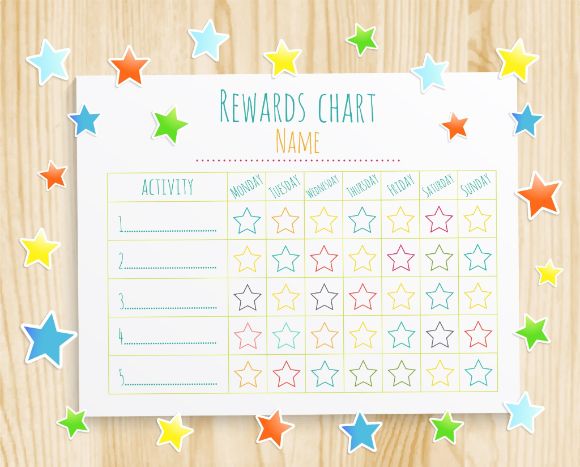Simple Techniques to Motivate Your Employees
A supportive office culture is the main way to motivate your employees. In the UK, people are happiest when they earn £37,000 because this allows them to achieve the best work life balance without feeling stressed. Although your employees need a liveable salary, many admit that having a job they enjoy is more important.
These 17 steps will help you motivate your employees:
- Page Contents
- 1) Be Generous with Praise
- 2) Set Achievable Goals
- 3) Plan Company Events
- 4) Throw Office Games
- 5) Have Team Lunches
- 6) Remove Management from Projects
- 7) Allow Employees to Decorate Their Spaces
- 8) Offer Flexible Work Hours
- 9) Reward Employees with Bonus Days Off
- 10) Write them a LinkedIn Recommendation
- 11) Parking Perks
- 12) Offer Room For Growth
- 13) Promote Internally
- 14) Encourage Time Off
- 15) Upgrade Their Job Title
- 16) Create a Rewards System
- 17) Autonomy
1) Be Generous with Praise
The first way to motivate your employees is with positive reinforcement. You need to praise your staff which will encourage them to replicate that behaviour in order to receive more praise. This works with praise for actions big or small. Praising your workers is simple but effective. It will make your staff feel happier and more content.
When an employee has made a mistake, do not tell them off. Instead ask ‘can you think of a way this outcome could have been better?’.
If your employees feel unappreciated or that their work goes unnoticed, they will be more inclined to leave. You need to make sure you let everyone know how much you value their hard work.

2) Set Achievable Goals
Every employee wants to feel valued so achieving work goals is important. You and your employees need to set a goal over a set period of time - a week, month, quarter or year - and talk about how they will achieve their goal. If they have something to work towards, it will motivate your employees.
This goal can be simple - such as make 10 sales calls a day or write three blog posts/articles per day. You and your employees can set goals together.

3) Plan Company Events
Most people spend more time with their colleagues than they do their family. For this reason alone it is important to create a family-vibe in the office where everyone is professional and gets along. One way to encourage this culture is by planning company events. This can be something simple such as planning a lunch or bringing in treats on a Friday.
Events, big or small, helps your staff feel cohesive and appreciated. It shows that you are giving something back in return of their hard work.

4) Throw Office Games
Studies show that employees perform better when they take frequent breaks. Office games can create something fun for your staff to look forward to each week. This can include earning the most money for your company to office mini-golf. The prizes do not need to be expensive and can range from a meal out or an office upgrade (new stationary).
Games create fun and healthy competition and provide a way for your employees to bond.

5) Have Team Lunches
Most people love free food. Have a team lunch once a week, month or quarter and buy pizza or sandwiches. When your employees receive a perk from the office, it makes your employees feel recognised.
You can also combine team lunches. This can recognise employees or celebrate a company bench mark.

6) Remove Management from Projects
When you remove management from projects, you are making everyone working on the project equal. This will encourage your employees to be motivated and work to the best of their ability. Your staff will work harder to ensure the project is successful because they are doing it for themselves rather than a manager.

7) Allow Employees to Decorate Their Spaces
Allow your employees to personalise their office space. This can be with photos, plants, decorative items and so forth. It will add personality to their areas in which they work daily.
A clean-desk policy does not work for every employee. Some people work better when their space is messy. The Association fro Psychological Science notes that personal items reduces stress levels, distractions and maintain emotional energy.

8) Offer Flexible Work Hours
When your employees work the traditional 9-5, it can feel impossible to get their everyday life chores done. By offering flexible work hours - even if your employees still work their contracted hours - can make employees feel that they have more time to do the important things they have to do.
You may reduce work hours such as an early Friday finish. Another example would let your employees come to work anytime between 7am - 7pm as long as they work their eight hour day. These small changes give people more autonomy over their day and it also accounts for emergencies. If their train is late or they have a doctors appointment your staff do not need to worry.
Your workers will feel happier with flexible work hours because they can control their day. It teaches employees time management and workload management too. Studies show that people who work fewer working hours are more productive than those who work more. 6 hour days were found to be the most productive.

9) Reward Employees with Bonus Days Off
Similar to flexible work hours, rewarding your employees with bonus days off can help recharge their batteries to be more productive overall. What better motivation to work hard than to know you can work a four day week once a month or once a fortnight?
You can create a day-off rewards system. People can draw a random day of the week to ensure everyone are not only taking Friday and Monday off.

10) Write Them A LinkedIn Recommendation
Professional development is important to your employees. A LinkedIn recommendation is the ultimate thank you for their hard work and time. Also, it is another way to publicly recognise their hard work.

11) Parking Perks
Free parking is a huge perk that can help with employee retention as well as motivate your employees overall. Parking can be expensive so offer a free parking space as a reward for a month or even pay for, or put towards, a yearly parking pass.

12) Offer Room For Growth
Few employees want to see themselves in the same position five years from now, so it is important your company understands each employee’s goals and offer room for growth. Encourage your staff to grow with you.
Provide them with ways they can take on more work or provide professional development so they can achieve their goals. Growth is not always about money. It can mean you pay for a training course that will benefit their careers.

13) Promote Internally
When you promote within the work place, it will motivate your employees and help them achieve their goals. It also allows them to know your recognise their hard work and see how they have grown.

14) Encourage Time Off
Employees who take more time off are more productive overall. Those who work overtime are likely to get sick more often as they will feel run down and may suffer from poor time management.
Time off of work provides mental clarity because everyone’s brains work and an overstretched brain is not the most efficient kind.

15) Upgrade Their Job Title
If an employee has taken on more responsibility, why not reward them with an upgraded job title. This does not mean a pay rise, but a new job title can boost employee morale.

16) Create a Rewards System
You can create a system that will motivate your employees to reach their goals. It can be something like a bag of sweets or a meal at the local pub. Perks and rewards go a long way to recognise and motivate those who work for you.

17) Autonomy
People work their best when there are less policies. Policies can often make employees feel trapped. To motivate your staff, give them autonomy. If your staff feel they have ownership of their careers, they are likely to excel.
Another way to create autonomy is a company uniform policy. This will make your employees feel like part of a team and want to work their best. It is important when choosing the work uniform your employees have an input on styles, colours and fit.
- Why Embroidery Looks Better on Polos Than T-Shirts – And What That Means for Your Brand - 29th December 2025
- 6 Visual Cues That Shape Workplace Culture - 23rd September 2025
- How to Roll Out a Workplace Uniform Policy - 23rd September 2025